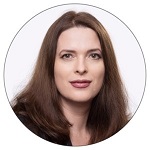Course report
Quantitative Methods in Radiation Oncology: Models, Trials and Clinical Outcomes - PDF Version
4-7 December 2022, Lisbon, Portugal
Course director:
- Søren M. Bentzen, biostatistician & radiation biologist, University of Maryland School of Medicine, Maryland (USA)
Could you please briefly introduce yourself?
I am a medical doctor who wanted to become an internal medicine specialist and who became enthusiastic about radiation oncology and made a detour. I realised that oncology, just like the disease that it is used to fight against, has a fast "metabolism", and there is a hunger for new solutions.
Why did you choose to attend this course?
To fight a stubborn, elusive and misleading enemy, we need constantly to learn about it to stay in the race. We need to upgrade ourselves continuously in order to take the best possible decisions for each patient, who trusts and counts on us.
Before the digital era, the challenge was to find information. Now, the challenge is to select the important information, according to its relevance and value.
This special skill of seeing beyond appearance, reading between the lines and understanding the mechanism that determines a certain fact, is not gained through our genes, but trained. Fortunately, the European Society for Radiotherapy and Oncology (ESTRO) course on quantitative methods in radiation oncology offers a helping hand in this eye-opening process.
I previously attended two other ESTRO courses (evidence-based radiation oncology, and multidisciplinary management of breast cancer), both in 2021.
What aspects of the course were the most interesting and why?
Most courses mainly feed the attendees valuable information. This one is more process-focused and trains us for action. It offers two kinds of tools: to see better what others have done and to do better ourselves.
For me, it was of great interest to find out more about the most common errors that are made in clinical research studies. Knowledge of these red flags helps me to develop critical thinking and to improve my chance to start a meaningful project.
Did the course activities improve your knowledge and skills in the relevant subject?
The theoretical lectures provided useful resources. They helped me to understand basic concepts and to know where I can look if I need more information. The practical activities in small groups were engaging and can be considered very useful exercises.
Did the course meet your expectations? If so, how?
The course exceeded my expectations, because there was a wide variety of lectures and the speakers showed such positive attitudes. It provided a useful overview of the past, present and future of research in radiation oncology. We could also see how a functional team is built from a clinician, a medical physicist, a statistician and a computer scientist, and how this team can develop successful projects.
List three important ‘takeaways’ following the course.
- “Read the whole paper”;
- “look at the data” (both statements convincingly underlined by Professor Søren Bentzen); and
- “carefully plan your study design” (my general conclusion after I had heard all the lectures).
How will what you have learnt be implemented in your daily job/ clinical practice?
- First ‑ I gained some important landmarks. I am more aware of the areas in which I lack some knowledge and what I need to improve; what are the “must-have” items to be able to understand the overwhelming amount of published data and to select the most relevant and trustable results.
- Second ‑ I will use what I learned to design a better PhD project and other research projects.
How would you encourage someone who has never been to an ESTRO course to join this course next year/ in two years?
If you want to gain a better understanding of research in radiation oncology, either to become a better researcher yourself, or just to understand what you read, this course is for you.
The speakers have expertise and experience, and they are open and supportive. They have interactive presentations and they do their best to ensure that the attendees leave the course wiser than they were before.

Monica-Emilia Chirilă
Radiation oncologist
Clinical Consultant, MVision AI, Helsinki, Finland
Assistant editor, Journal of Medical and Radiation Oncology,
Cluj, Romania